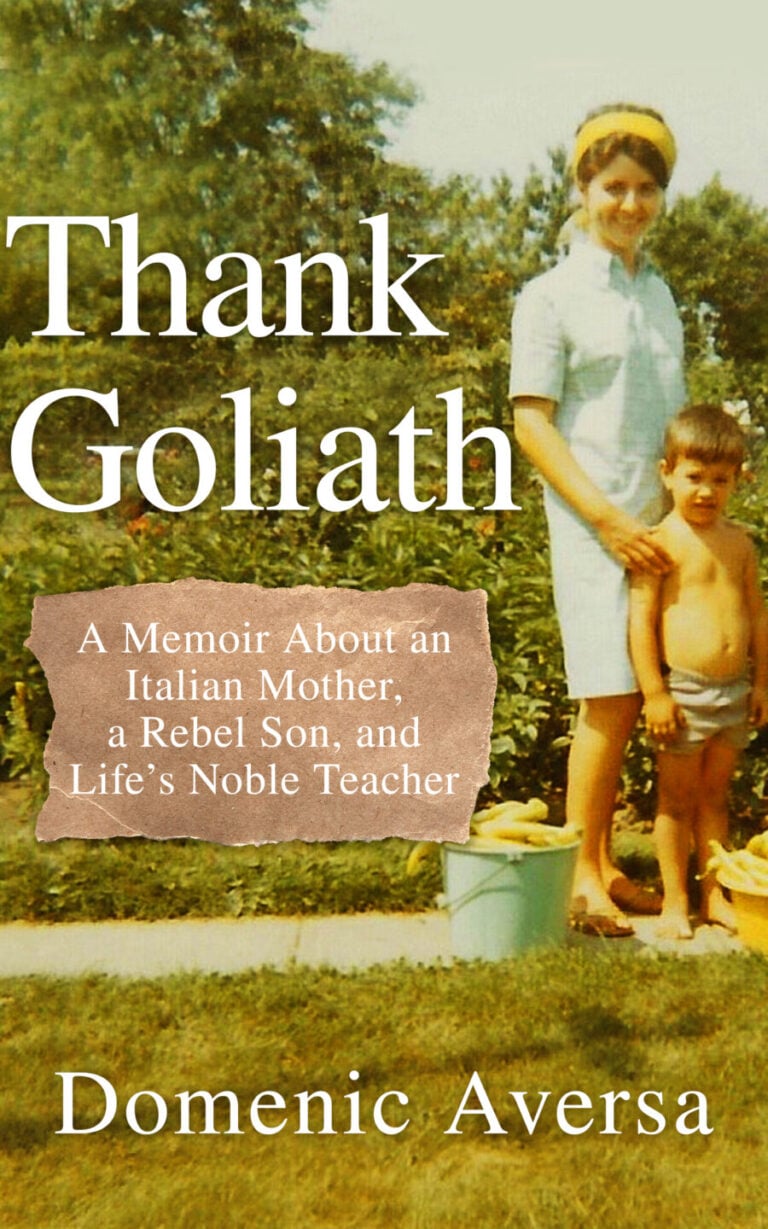“My mother was born with a twin. They were premature. At birth, they were weighed with a kitchen scale. They weren’t much more than 1.5 pounds each.” With those four sentences, Domenic Aversa introduces us to one of the better memoir characters in recent years: his mother, Benedetta, born in Italy during the latter days of World War II. When she was eleven, her family immigrated to the United States, settling in Long Island. She met Domenic’s father, Giancinto, when she offered him a piece of vanilla cake. They married and moved to Ontario, where “Dom” was born straight away. Like a lot of kids, he navigated poorly, if hilariously, the boundary between an overbearing mother and the lures of childhood. (The scene where he and his cousin Pete write their own ransom note is priceless.) Other troubles follow, including those of a legal nature, until an adult Domenic finally pulls himself together and launches several successful business and community service ventures. Meanwhile, his mother’s failing health looms as his most fearsome opponent yet.
The biblical villain Goliath is one of history’s most recognizable characters, invoked by hundreds of years of writers to represent seemingly insurmountable obstacles. Malcolm Gladwell has done it. So has education writer Diane Ravitch. Ditto steampunk novelist Scott Westerfeld. The reference is the height of cliché, yet that shouldn’t deter readers from devouring this memoir. No matter what Domenic does–filing for bankruptcy, undergoing cornea transplants, living with Trappist monks in Kentucky–his mother remains his north star, a constant amid his years of restless soul-searching. The book’s best moments are his conversations with her, which make Alice’s Adventures in Wonderland sound as staid as city council meetings. When he tells her he’s going to Mongolia, she accuses him of running from his problems, to which he replies:
“Mom, do you even know where Mongolia is?”
“They live in those things. The jurts.”
“Yurts.”
“It’s cold there now.”
“I’ll be fine.”
“You made money but now you want to go live like you’re poor?”
Witty and poignant, Domenic Aversa tells the page-turning story of his complicated relationship with his indomitable mother in THANK GOLIATH.
~Anthony Aycock for IndieReader


